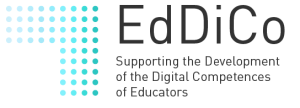A Digital Learning Ecologies Conceptual Framework in the Microsystem of Online Higher Education – LO
The abstract offers a reflection on new emerging questions, that aim to offer solutions to the educational problem of how to serve the needs of both individual learners and society today.
To advance our understanding of learning in the digital age, we need conceptual frameworks and organizing schemes that can not only advance theory but also guide data collection for empirical research in fields such as online learning. A digital learning ecology, therefore, is defined as the set of situated and ever-shifting physical and virtual contexts that provide
opportunities for learning, mediated through digital technology.
In a digital learning ecology, learning emerges through the interactions between an individual’s interpersonal and networked relationships, the activities they engage in, and the digital resources they seek out or those that are introduced by a teacher, peer or knowledgeable other.
The objective of defining a digital learning ecology conceptual framework has been to create an organizing scheme that will support future lines of research and data collection in the field of online learning using an ecological approach.

